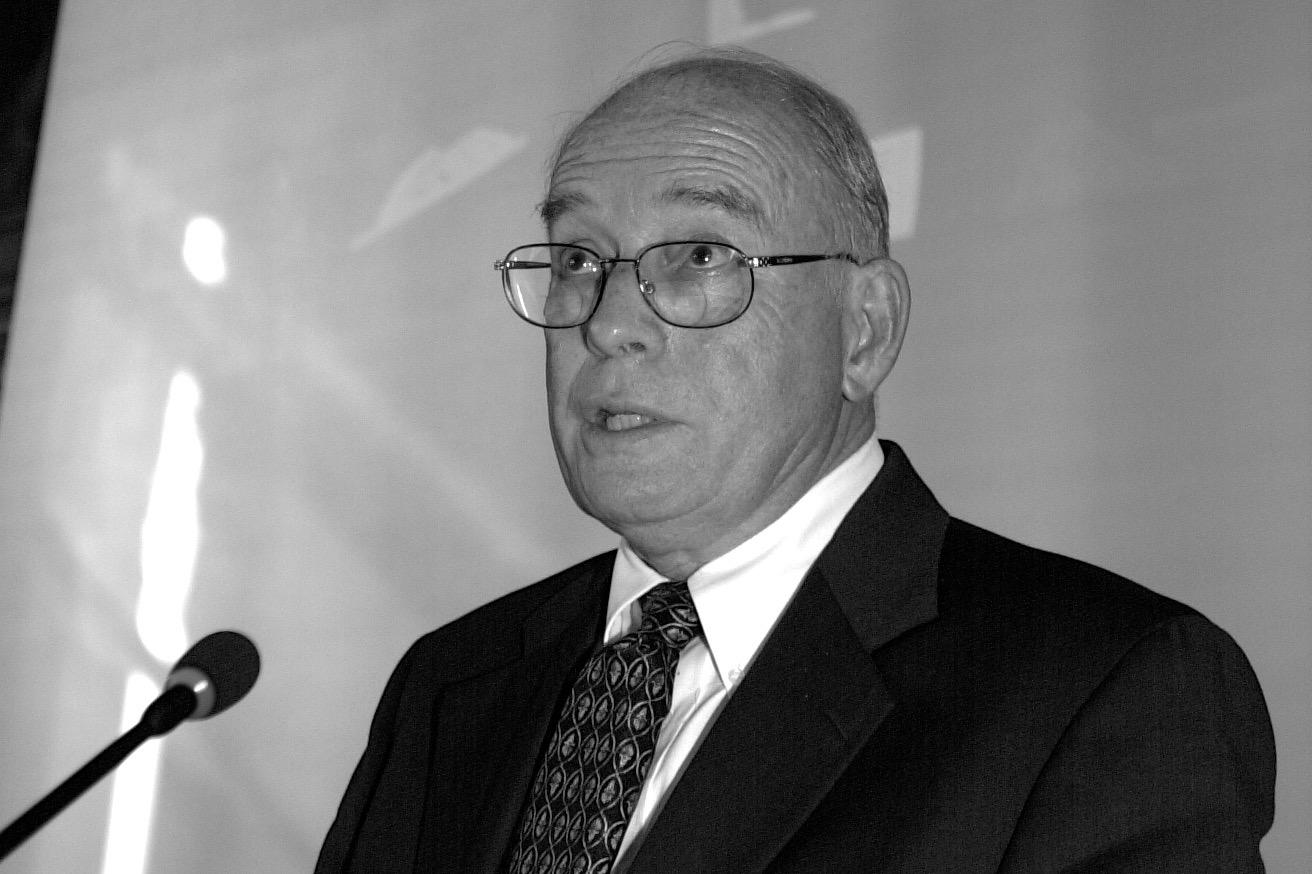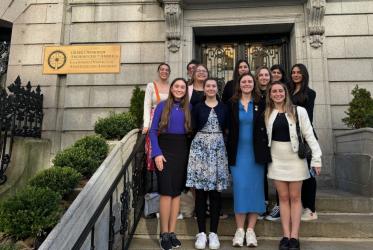For 30 years, he served in various aspects of the WCC’s work: as a member of the Faith and Order Commission (1968-1998), the last seven years as vice-moderator); on the WCC central committee (1976-1998); and as moderator of the Ecumenical Institute Bossey (1975- 1983). He was a delegate to five WCC assemblies: Uppsala (1968), Nairobi (1975), Vancouver (1983), Canberra (1991), and Harare (1998).
“It was with deep sorrow that we received the news about the passing of Rev. Dr Paul A. Crow,” said Rev. Prof. Dr Ioan Sauca, WCC interim general secretary. “He leaves behind an inspiring legacy for the global ecumenical movement, through his tireless ministry and lifelong passion for seeking Christian unity—what he described as the ‘polar star’ in his ministry.
“We remember Dr Crow as a significant ecumenical theologian, architect and mentor to generations of young ecumenists and one of the precious expressions of the remarkable commitment of the Christian Church (Disciples of Christ) to the search for the visible unity of all Christians,” Sauca added.
Within the National Council of Churches of Christ in the USA, Crow served on the general board and executive committee, and was chairperson of the Panel on the Nature of Ecumenical Commitment that redefined the nature of the National Council of Churches.
He was known for promoting Christian unity in its local, regional, national and international expressions. He helped to define and shape the ecumenical movement in many ways – especially in nurturing seminary students and younger pastors in understanding their call to ministry as including the vision of unity and reconciliation as the “matrix for mission” in our world today.
For Crow, ecumenism was a central academic interest, a passion of the heart, and an object of lifelong commitment.
He taught history at Lexington Theological Seminary (1961-1968) and served as the general secretary of the Consultation on Church Union (1968-1974).
He led the Christian Unity and Interfaith Ministry (Disciples of Christ) for 25 years, from 1974-1999. His leadership included significant ecumenical advances for the Disciples of Christ in establishing a full partnership with the United Church of Christ, the creation of the Peter Ainslie III Lectures on Christian Unity and the Joe A. and Nancy Vaughn Stalcup Lectures on Christian Unity, and the initiation and development of the International Commission for Dialogue between the Disciples of Christ and the Roman Catholic Church.
A book honoring his contributions as a distinguished leader, scholar, and statesman, “The Vision of Christian Unity,” was edited by Thomas F. Best and Theodore J. Nottingham.
Crow was born in Birmingham, Alabama, on 17 November 1931. At age two he and his parents – Paul and Beulah Crow – moved to Lanett, Alabama, a small textile town in East Alabama. His sense of the church ecumenical began as a youth when he served as president of the Disciples International Christian Youth Fellowship and participated in the United Christian Youth Movement, coordinated by the Youth Department of the National Council of Churches.
His academic journey brought him degrees from the University of Alabama (B.S. Chemistry), Lexington Theological Seminary (B .D.), and Hartford Seminary Foundation (S.T.M., Ph.D.).
His theses and dissertation were on ecumenical subjects: the nature of Christian unity, the Church of South India, and the concept of unity in diversity in the Faith and Order Movement.
Postdoctoral studies took him to Oxford University, Bossey Ecumenical Institute, and the University of Geneva.
He is survived by his wife, Mary; three children, Carol, Stephen, and Susan; and six grandchildren, Joshua, Laura, Jacob (Phillips), Tyler (Crow), and Alexander and MacKenzie (Jones).
Paul A. Crow, Jr. authored The Ecumenical Movement in Bibliographical Outline (1965), Christian Unity: Matrix for Mission (1982), and Impulses toward Christian Unity in 19th Century America (1983). His contributions to the World Council of Churches journal The Ecumenical Review include: “Ecumenics as Reflections on Models of Christian Unity” (39/4, 1987) and “The Legacy of four World Conferences on Faith and Order” (45/1, 1993).








